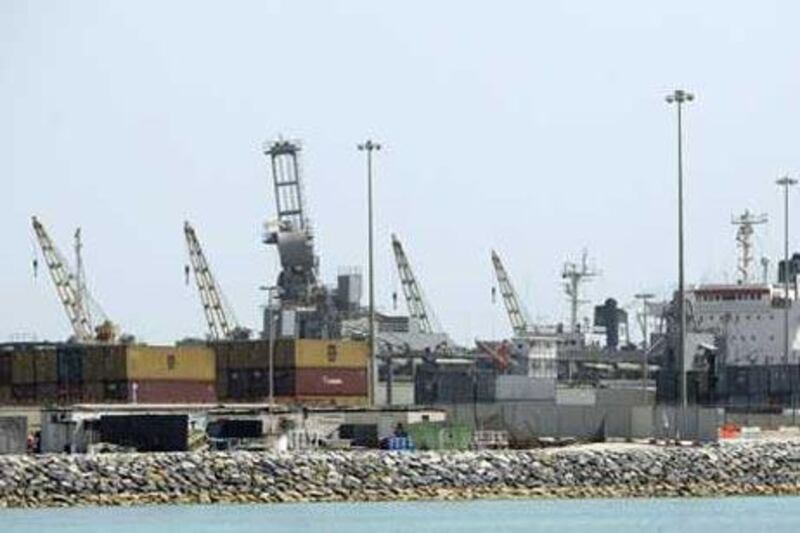Abu Dhabi plans to establish the Gulf's first export credit agency to try to boost non-oil trade, a senior government official says. "It's at an early stage but we have been talking to banks in the US and Asia about how we can give loans to traders who import or export to secure the trading process," said Adeeb al Alafit, the director of foreign trade and imports for the Abu Dhabi Department of Economic Development (DED).
"It would provide loans for logistics purposes and for the foreign buyer to buy a company's products, which will increase a company's exports." Export credit agencies (ECAs), or export-import banks as they are commonly known, are government-owned firms that finance and insure trade deals. Countries have traditionally used them to facilitate trade that would otherwise not have been possible because of high political and financial risks. By giving government guarantees, ECAs provide domestic companies with tools to increase export volumes.
ECAs have played a major role for decades in countries from the US to the Ukraine in bolstering trade and forging new economic links in an increasingly globalised world. The Export-Import Bank of the US, formed in 1934, last year supported about US$19.6 billion (Dh71.95bn) in exports from the US through $14.4bn worth of loans, guarantees and insurance agreements. Boeing, the American aerospace firm that entered into a partnership last month with the Abu Dhabi strategic investment firm Mubadala Development, is one of the US export-import bank's biggest customers.
If the joint venture starts making aeroplane parts in Al Ain as planned, a local export-import bank could play a role in distributing them across the globe. Officials in Abu Dhabi are focusing on a seven-fold increase in the value of non-oil exports as part of a plan to nurture growth in the private sector and protect the emirate's economy from future volatility in the price of oil, by far its biggest export.
Abu Dhabi wants to raise the contribution of non-oil exports to the emirate's GDP to 11 per cent by 2030 from 1.5 per cent now. Those plans involve boosting the value of exports each year by 7 per cent. Exporting would be cheaper and easier with the establishment of an export-import bank, said Colin Smith, the general manager of Abu Dhabi Vegetable Oil Company. About 80 per cent of the food products made by the company are exported to countries in the GCC, Pakistan, Yemen, Lebanon, Iran and Iraq. The company's exports this year have so far reached about Dh300 million.
"It would reduce our cost, as at the moment we rely on four different commercial banks which give guarantees of credit if you're selling to a third party," said Mr Smith. "Life would also be made simpler as there would be less export documentation required. If you get insurance approved by the agency then you would not have to issue a guarantee. We would be able to sell and make any claims for non-payment with the bank."
An announcement on the schedule for setting up the bank will be made early next year, Mr al Alafit said. He said the DED was holding talks with international export-import banks in the US, Singapore and Australia to gain expertise on how the bank could be set up and run. MENA, China, India, Singapore, Japan and Malaysia are among the countries and regions Abu Dhabi is keen to develop export links with. The DED has already organised a series of workshops for companies hoping to enter the export market.
Industry, finance, health care and tourism are among the sectors Abu Dhabi has focused on to diversify its economy and lift the value of its non-oil sector by 64 per cent by 2030. The only ECA operating in the Middle East is the African Export-Import Bank, which is based in Cairo and was started in 1993. @Email:tarnold@thenational.ae





